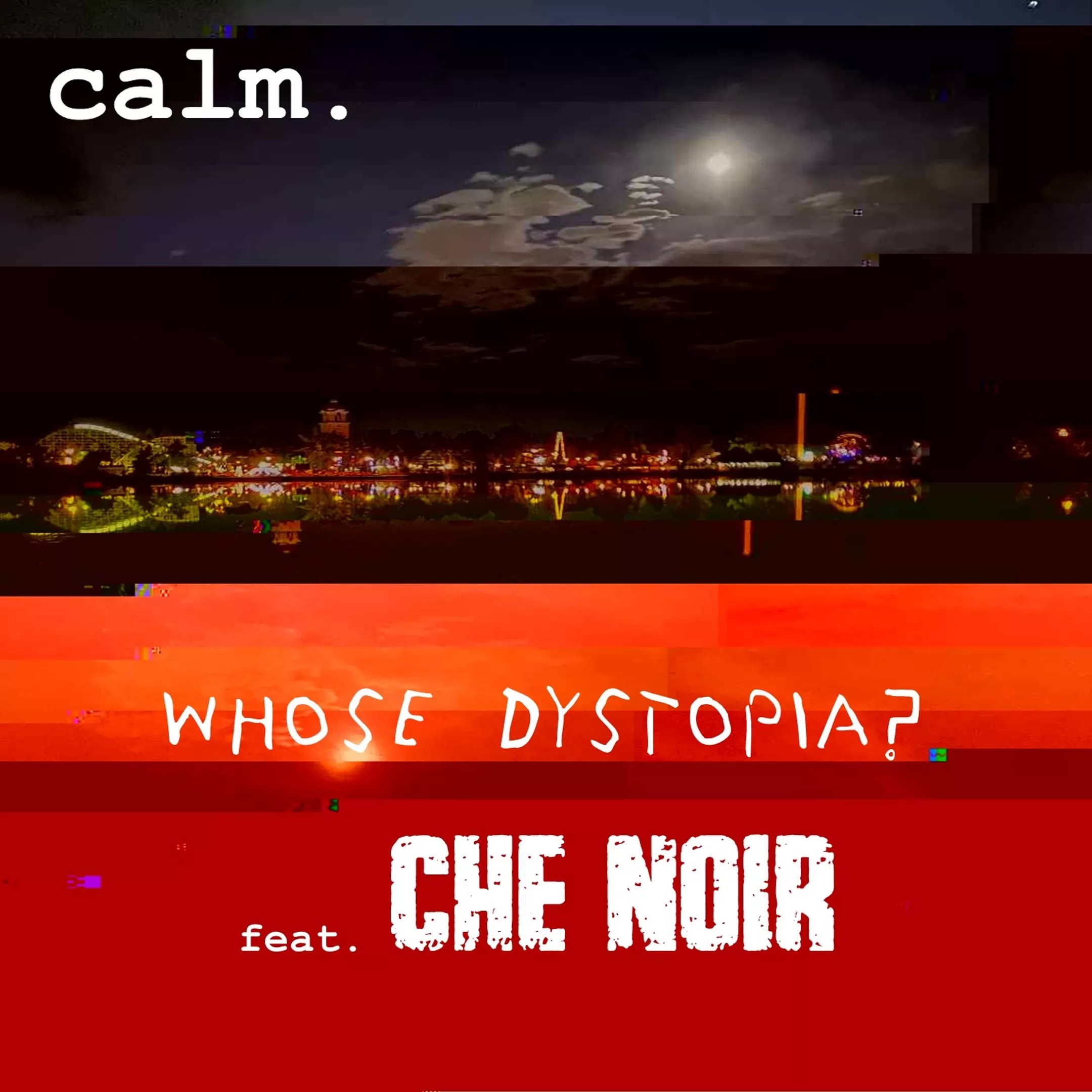
Cameron Castro

Audio By Carbonatix
According to Chris Steele, COVID-19 and the resulting death, loss of employment, crooked landlords, supply-chain interruptions and other bleak, near-future inconveniences can make the world feel like a dystopia.
And maybe he’s right. But what is a dystopia, anyway?
For Steele – who performs as Time with producer AwareNess in the Denver hip-hop duo Calm. – it’s a matter of perspective. He lost his job last year because of the pandemic and had to take a minimum-wage call-center gig, and he’s having issues with a recently deceased landlord’s progeny trying to sell the property while he’s still living in it. It’s a bad year, make that year and a half, but who’s counting? It could be – and throughout history, often has been – much worse.
Steele and Buffalo, New York-based MC Che’ Noir take a deep dive into the topic on “Whose Dystopia?,” which offers a dreamy beat that belies the heaviness of the subject matter.
“My verse starts out with ‘The cracker didn’t have the TP in the back of the Acura,'” Steele says. “So it was about a white guy who was like, ‘Oh, my world is now gone because toilet paper.'”
Not having toilet paper sucks, no doubt, and the empty shelves gave many a shopper pause in 2020, but it pales in comparison to some of the truly awful stuff that runs throughout the history of Europeans in North America. Steele notes that America was founded on the concept of spreading pandemic, and offers the following example: Jeffery Amherst, a British commander in the French and Indian War, for whom several places, including Amherst, Massachusetts, are named. Amherst advocated gifting smallpox-infected blankets to Indigenous people in an effort to wipe them out.

Artwork for “Whose Dystopia?”
Courtesy of Calm.
Now it appears to be happening to us, kind of.
“There have already been tons of apocalypses in other cultures,” Steele says. “The white dominant culture, the colonizing culture, is now experiencing something destabilizing.”
In his verse, Steele name-checks one of Columbus’s ships; the Treaty of Tordesillas, which divided the New World between Spain and Portugal; and the Mayflower, which brought the Puritans and all their madness to America – all harbingers of doom for the Indigenous people who watched them pull up on shore. He name-drops Thomas More, who advocated for slavery, of all things, in his book Utopia, which was ostensibly about a perfect society.
Dystopia is relevant to who you are and where you are and when you are. As Steele points out in the kicker of his verse: “What you call history could be someone else’s dystopia.”
Che’ Noir opens the song with a verse that concerns the plight of two unnamed Black Americans who have to work twice as hard as a white person to make the same amount while dealing with racism and/or sexism on a daily basis. One character is shot by police as he reaches for his license during a traffic stop following a twelve-hour shift. It’s a bleak vision of the world laid out in sixteen bars.
“It’s more of a zoomed-in version of the dystopia that people don’t see,” Steele says. “If you look at the pandemic and you’re like, ‘This sucks. I lost my job. I don’t have this’ – if you look, unemployment rates are more than double for Black people and people of color. I think that’s what she’s bringing out in her verse.”
Both verses are dense and invite repeat listens, and the track samples science-fiction writer Ursula K. Le Guin – who often wrote about utopias, alternative political structures, gender and sexuality – railing against the evils of the rich.
“Whose Dystopia?” follows Nighthawks at McCoy’s, Steele’s collaborative album with folk singer Maudlin Magpie and the Germany-based producer A Thousand Vows that views a north Denver diner as a portal to dimensions where ruthless capitalism, alienation, depression and mortality can be seen more clearly. It’s also a tribute to singer Tom Waits.
In 2020, Steele released These Songs Kill Fascists, a Woody Guthrie-inspired collection of hip-hop songs.
The new single is the first off of Calm.’s Conversations With a Willow Tree, due out later this year, which promises verses about landlords, our over-advertised world and at least two tracks that delve into the concept of dystopia. The album was originally going to be called To Live and Die in Dystopia, but Steele says that he and his collaborators began to question their own premise, because who are they to say they live in one?
“Even before the pandemic, Denver [was] on stolen land,” Steele adds. “It took an extreme amount of violence on the Cheyenne and Arapaho – the Sand Creek Massacre – to steal this land. It took an apocalypse to make Denver, to have a Safeway store.”
“Whose Dystopia?” drops on Monday, November 8, on Apple Music, Spotify and Bandcamp. Calm. performs with Armand Hammer and Trayce Chapman at the hi-dive, 7 South Broadway, on Wednesday, November 10. Tickets, $20-$22, are available at eventbrite.com.